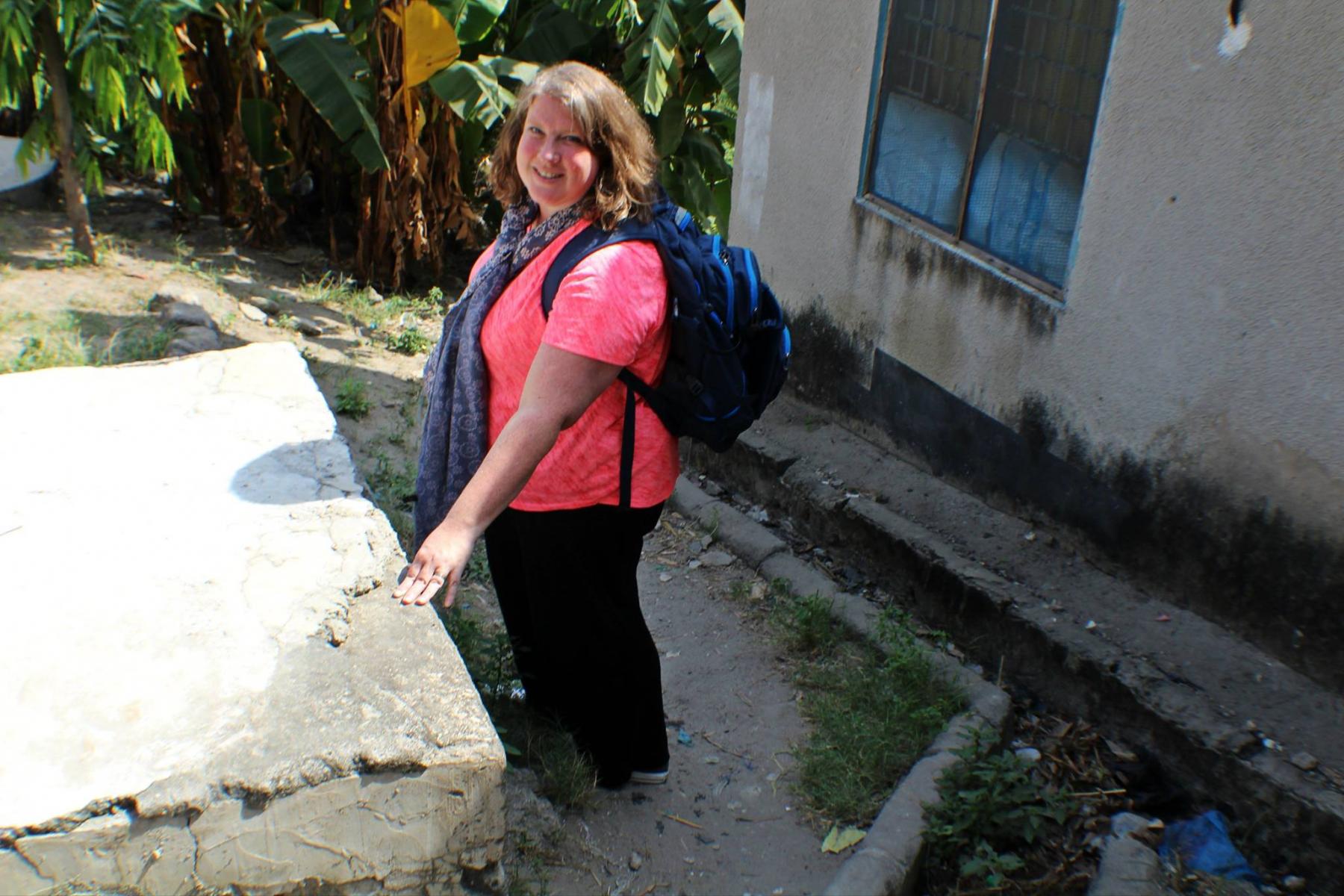
MHDI FACULTY SPOTLIGHT
Julie TippensAssistant Professor, Department of Child, Youth and Family Studies
Date that you joined UNL: Fall 2016
Hometown:
I grew up in the suburbs of Philadelphia, although the Mount Airy neighborhood of
Philly – where I lived for a number of years – is my favorite place (and a stone’s throw from my childhood home). Although I’m not much of a sports fan, I love supporting the Phillies at home games. We also have the best mascot, the Phillie Phanatic!
Describe your research and how it contributes to alleviating or understanding health disparities?
My research examines the social, cultural, and structural determinants of refugees’ health, wellbeing, and resilience in first asylum and resettlement settings. Most refugees live in low- and middle-income countries; to this end, I have worked and conducted research on health in humanitarian contexts in East Africa for more than 15 years. I am also interested in how refugees promote community resilience and wellbeing locally. Nebraska is an important resettlement state, having welcomed the largest number of refugees per capita in the U.S. in 2016. I blend ethnographic, participatory, and visual methods to privilege the voices, perspectives, and experiences of refugees. This lends important, nuanced insight into how refugees themselves perceive and address health and wellbeing.
I’ve been working with refugee communities for nearly two decades, and my current research is strongly influenced by my years as a global public health practitioner. My focus on resilience stems from my frustration with the pervasiveness of deficits-based approaches concerning refugee health. When I worked as a practitioner, I was always inspired by refugees’ everyday creativity to overcome obstacles. I wanted to document what concepts like “resilience” and “wellbeing” mean to different people as well as to identify culturally salient coping strategies and resources used by various groups to promote wellbeing. I love the idea of using this information to culturally tailor programs and policies. I participate on a local refugee health and mental health coalition to ensure my research is relevant and to share findings in real time.
How does your research contribute to your research area at MHDI?
We are a multidisciplinary group; overall, I contribute theoretical frameworks and methodological approaches to understand health (in)equity based on my training in global public health (social and behavioral health, maternal and child health) and medical anthropology. Although my research primarily focuses on refugees, I have been excited for the opportunity to collaborate with MHDI colleagues on projects that expand to immigrant populations. I was excited to be part of a recent health assessment that included Somali and Latinx participants in rural Nebraska. Additionally, several of us are currently collaborating to enhance supports for refugee and immigrant communities across Nebraska during COVID-19. We always welcome and support new ideas!
What advice would you give to incoming students (graduate or undergraduate) who are interested in studying health disparities?
I would recommend taking courses outside of your home department and working with faculty from different disciplines, if possible. Health (in)equity is too complex to solve from any single discipline or vantage point. Learning the skills and languages of different disciplines will foster interdisciplinary and multidisciplinary creativity and help expand the impact of your research. (Being part of MHDI as a graduate student is one way to accomplish this!)
I also tell my students to form writing groups. Again, if you can find people from different disciplines, all the better! And writing groups don’t need to be 100% work. When I was a graduate student, my group met weekly and spent one hour on our writing and one hour sharing a meal. It helped us make progress and, more importantly, it helped create a sense of community in graduate school.
What advice would you give to incoming faculty who are interested in health disparity research?
Join MHDI! There are wonderful opportunities across the Nebraska University system to collaborate with researchers from different disciplines. MHDI is an exceptional place to meet colleagues and friends who are committed to working toward health equity. I’ve learned so much collaborating with others who bring unique disciplinary lenses and ideas to improve health equity across the state.
What would your colleagues/students be surprised to learn about you?
This is tough; I’m such an open book! I’ll have to go back some time. Shortly after graduating from college, I was struggling with what I wanted to do with my life. I was living with friends at the time, and we had an enormous world map hanging in our dining room. One night, a few of us joked that we should throw darts at the map and move wherever they landed. Technically, I landed in the ocean. However, I was close enough to Thailand that I purchased a one-way ticket with my credit card and moved to Chiang Mai. I look back now and think it was crazy, but that experience literally changed my life! I found an entry-level job working on HIV/AIDS issues at a local nongovernmental organization, which led to a passion for global public health. My undergraduate degree was in English literature with photography and creative writing minors. Without that game of darts, I would never be where I am now!